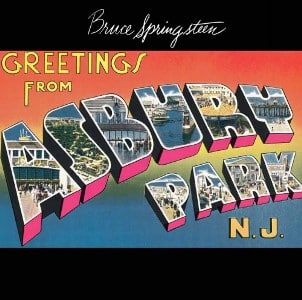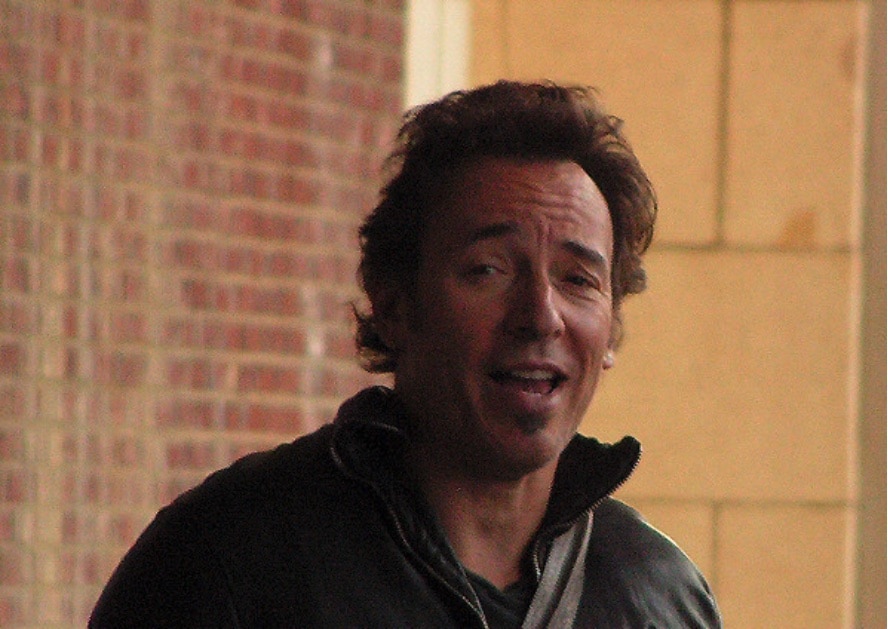It would be fun to open this column with the sentence, “On Jan. 5, 1973, we were blinded by the light of the debut album of a bright, young rock and roll superstar,” or some such. But Bruce Springsteen’s debut album, “Greetings from Asbury Park, N.J.,” more flickered like a waning candle than burst like a supernova. In retrospect, in view of his astronomical career since this less-than-stellar debut, “Greetings” has stood the test of time as some of Springsteen’s finest writing. While he did not have a hit from the record, revenue from the successful cover of “Blinded by the Light” by Manfred Mann’s Earth Band helped to keep young Springsteen working on his craft, eventually to become one of the most beloved and successful American rock stars.

While the public largely ignored “Greetings,” the album caught the attention of music critics who made the inevitable comparison to Bob Dylan, who, in the eyes of some, had disappeared into a black hole of self-inflicted mediocrity. Springsteen’s dense, stream-of-consciousness lyrics in “Greetings” invoked some of the same style of writing in Dylan’s early work. “Blinded by the Light” shares the frenetic pace, rhyming structure and head-scratching narrative as “Subterranean Homesick Blues” from Dylan’s 1965 album, “Bringing it All Back Home.” Springsteen’s “For You” invokes the end-of-my-tether lyrical mood of “Stuck Inside of Mobile with the Memphis Blues Again,” from Dylan’s 1966 “Blonde on Blonde.”
Aware of the danger of being compared to a legend like Dylan, Springsteen has said that he consciously moved away from writing songs that might invoke Dylan’s early work. “I was very self-conscious about the Dylan comparisons,” he told Stephen Colbert in 2020, “so I moved away from it rather quickly. But looking back on it, I kind of had my own Dylanesque style that was really a lot of fun, opening the dam and letting the words spill out.” Dylan himself reportedly said of Springsteen’s debut album, “He’d better be careful or he might go through every word in the English language and run out of words.”
Despite the comparisons, though, “Greetings from Asbury Park, N.J.” stands on its own as an original contribution to American music. Springsteen stakes out the terrain that would be the foundation for constructing his commercial and critical success over the subsequent 50 years. It invokes the concrete images of the cars, bars, boardwalks, beaches, backstreets, subways, tunnels, churches, hot rods and highways that formed his life and informed his writing. “Most of the songs were twisted autobiographies,” Springsteen explains in his memoir, “Born to Run.” They “found their seed in places, people, hangouts and incidents I’d seen and things I’d lived.” In “Greetings,” transcendent morals are drawn from the gritty lessons of the streets of his youth.
Take, for example, “Growing Up,” with its martial metaphors for his teenage years: “The flag of piracy flew from my mast / My sails were set wing to wing / I had a jukebox graduate for a first mate / She couldn’t sail but she sure could sing,” the verse begins. Then, shifting the metaphor, he writes, “I pushed B-52 and bombed them with the blues / With my gear set stubborn on standing / I broke all the rules, strafed my old high school / Never once gave thought to landing.” And the song is tied together with variations on the chorus, “When they said, ‘Sit down,’ I stood up.”
For a time, when Springsteen sang “Growin’ Up” in concert, he talked on stage about the youthful conflicts that he had with his father, but which slowly healed over the years. And in his memoir, he writes movingly of the tender, final reconciliation with his father, who had battled with progressive mental illness his entire life. Doug Springsteen drove to Bruce’s home, saying he “just wanted to say hi.” After they sat down — together this time — Doug said, “‘Bruce, you’ve been very good to us. … And I wasn’t very good to you.” After a brief silence, Bruce said simply, “‘You did the best you could.'” And Bruce concludes the scene in the memoir, “That was it. It was all I needed, all that was necessary.”
In “It’s Hard to Be a Saint in the City,” from “Greetings,” Springsteen writes about the various claims that are made on our moral lives, many of which compete with each other for dominance.
“The devil appeared like Jesus through the steam in the street
Showin’ me a hand I knew even the cops couldn’t beat
I felt his hot breath on my neck as I dove into the heat
It’s so hard to be a saint when you’re just a boy out on the street.”
But the narrator fights back against these forces, represented by the “sages of the subway”:
“But it’s too hot in these tunnels, you can get hit up by the heat
You get up to get out at your next stop, but they push you back in your seat
Your heart starts beatin’ faster as you struggle to your feet
Then you’re outta that hole and back up on the street.”
One doesn’t have to grow up in Asbury Park, New Jersey, or spend much of one’s youth in New York City to recognize the truth of these all-too-human temptations and our struggle against them. We don’t know how the singer of “Saint in the City” resolved the tension, but we can see how these metaphors speak to our own moral lives.
Springsteen was raised Catholic, living in the shadow of St. Rose of Lima Church, in Freehold, New Jersey. In his memoir, he writes eloquently about the abiding influence that Catholicism has had on his songwriting. In Catholicism, he writes, “there existed the poetry, danger and darkness that reflected my imagination and my inner self. I found a land of great and harsh beauty, of fantastic stories, of unimaginable punishment and infinite reward.” He came to understand “that once you’re a Catholic, you’re always a Catholic.”
Springsteen admits that he is not the most faithful participant in the life of the Church. Who among us is? But the songs of “Greetings from Asbury Park, N.J.,” and the hundreds he has written since, demonstrate a deeply Catholic sensibility from which we can all glean important and perennial moral lessons. It’s hard to be a saint anywhere.
Kenneth Craycraft is a columnist for Our Sunday Visitor and an associate professor of moral theology at Mount St. Mary’s Seminary and School of Theology in Cincinnati. Follow him on Twitter @krcraycraft.





